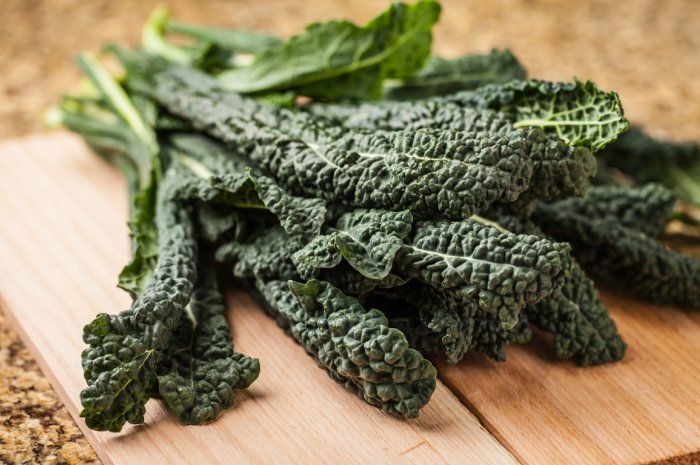Why Kale Isn't Really All That Great
Rarely, if ever, are the nutritional benefits of kale challenged— and why would they be? The darling of the superfood world is low in calories and high in iron and vitamin K, has zero fat, and is filled with powerful antioxidants. It's also versatile, being tough enough to hold up to sautés and braises, but tender enough to be used in salads. Kale's subtle bitterness makes it an ideal accompaniment to rich proteins, but its flavor is faint enough that it can be hidden within a tropical fruit smoothie.
All that being said, other greens like spinach, watercress, and beet greens are nutritionally equal, or superior to kale. These other leafy greens can be easier to cook, less expensive, and some might even say taste better.
Here's why kale isn't really all that great.
It has Too Much Fiber
Recipes for raw kale salads sometimes call for cooks to "massage" the leaves. This is because kale contains a high amount of tough, insoluble fiber, indigestible plant material that stays largely intact as it travels through your digestive tract. Insoluble fiber is necessary for regular bowel movements and can relieve constipation, but too much of it may cause digestive issues. If kale's fiber is not properly digested, it may get caught in the gut where it can ferment, leading to gas and bloating.
Click here for foods to eat (and not eat) to relieve bloating.
It Contains Indigestible Sugars
Cruciferous vegetables like broccoli, Brussels sprouts, cauliflower, and kale are made up of mostly carbohydrates, but the one called raffinose is particularly difficult to digest. The human stomach and small intestine lack the proper enzymes to breakdown raffinose, so it moves down into the large intestine fully intact. Here, the raffinose ferments with the existing intestinal bacteria creating methane and carbon dioxide, again producing bloating and gas, as well as resultant flatulence.
To see which foods your stomach will hate your after eating, click here.
It May Affect Thyroid Functioning
Similar to other cruciferous vegetables, kale can have adverse effects on thyroid functioning. Kale is classified as a goitrogenic food, meaning that it contains substances that may contribute to an enlarged thyroid; in particular, the compound thiocyanate, which in large quantities can interfere with iodine absorption. A lack of iodine can lead to hypothyroidism, a condition where the thyroid gland fails to produce enough thyroid hormone for normal body functions. Eating kale in normal amounts doesn't pose any risk, but ingesting highly concentrated kale juices may heighten the risk for individuals with iron deficiency.
